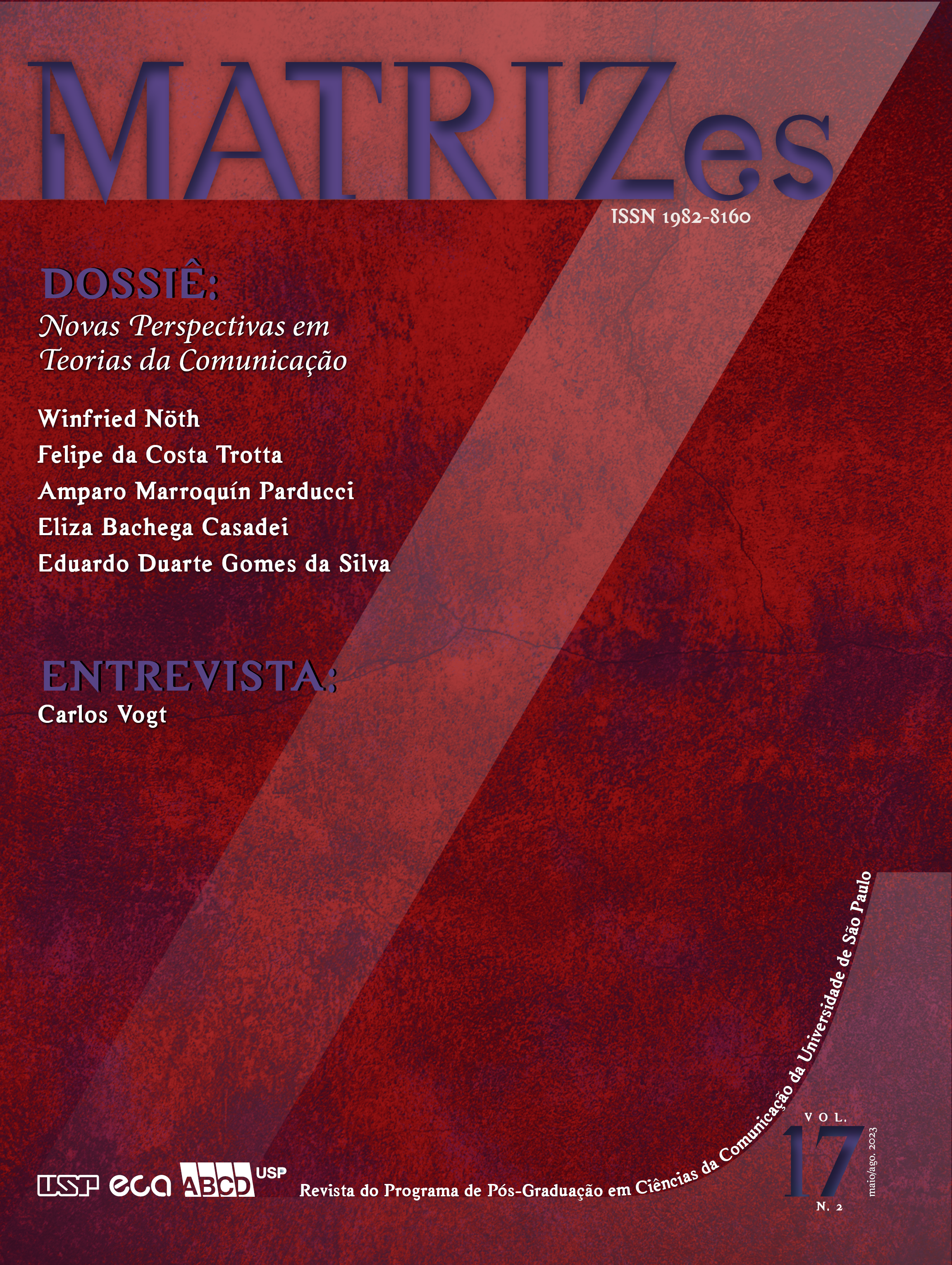Refused States: The Effect of Culturalism on Nations with a colonization history
DOI:
https://doi.org/10.11606/issn.1982-8160.v17i2p135-151Keywords:
Colonization, Refused State, Minority, Culturalism, Social divisionAbstract
This study anylises the formation of minority states — following Deleuze & Guattari (1997) —, the effect of culturalism in nations with a history of colonization — as proposed by Souza (2019) —, and the influence the economic system has in this process — as per Mandel (1998) as it also acts as an agent of purity — according to Bauman (1998). The culmination of this process divides countries and their populations into two castes, the Europeanized elite and the populace, in a movement that spirals and feedbacks. The elite sees itself as distant from the population and occupies the main information positions in a country, spreading culturalism to all layers of the population.
Downloads
References
Adorno, T. W. (2001). Mínima moralia. Edições 70.
Adorno, T. W. (2002). Indústria Cultural e Sociedade. Paz e Terra.
Almond, G., & Verba, S. (1963). The civic culture. Princeton University Press.
Andrés, R. (2023). A razão dos centavos. Zahar.
Ávila, D. R. Z. (2023). Resistencia social y uso progresivo de la fuerza en las manifestaciones sociales. Foro: Revista de Derecho, 39(39), 105–127. https://doi.org/10.32719/26312484.2023.39.6
Bauman, Z. (1998). O mal-estar da pós-modernidade. Jorge Zahar.
Bregman, R. (2018). Utopia para realistas. Bertrand.
Deleuze, G., & Guattari, F. (1997). Mil platôs: Capitalismo e Esquizofrenia, Vol. 5. Editora 34.
Freitas, M. C. P., & Prates, D. M. (2002). Reestruturação do Sistema Financeiro Internacional e Países Periféricos. Revista de Economia Política, 22(2), 207–224. https://doi.org/10.1590/0101-31572002-1268
Geertz, C. (2008). A Interpretação das Culturas. LTC.
Giddens, A., & Sutton, P. W. (2017). Conceitos essenciais da sociologia. Editora UNESP.
Maffesoli, M. (2002). Utopias e divino social. In M. Martins (Ed.), Comunicação e Sociedade (4. ed., pp. 11–25). CECS.
Mandel, E. (1998). Late Capitalism (23. ed.). NBL.
Marques, A. P. (2020). Crise e trabalho: interrogações em tempos de pandemia. In M. Oliveira, H. Machado, J. Sarmento, & M. do C. Ribeiro (Eds.), Sociedade e crise(s) (pp. 31–39). UMinho. https://doi.org/https://doi.org/10.21814/uminho.ed.21
Martins, M. (2017). A linguagem, a verdade e o poder: ensaio de semiótica social. (2. ed.). Húmus. https://doi.org/10.1017/CBO9781107415324.004
Miranda, S. R., & Freitas, D. P. (2013). Brasil sob o signo da memória: notas sobre jovens, nação e nacionalismos. Educação Em Revista, 29, 143–174. https://doi.org/https://doi.org/10.1590/S0102-46982013000200007
Scheidel, W., & Friesen, S. J. (2009). The size of the economy and the distribution of income in the roman empire. Journal of Roman Studies, 99, 61–91. https://doi.org/10.3815/007543509789745223
Souza, J. (2019). A elite do atraso. Estação Brasil.
Zocca, R., & Martins, M. de L. (2021). Sdubid, o retrato da atualidade: Análise da arte de Tommy Cash. Revista de Comunicação e Linguagens, 55, 41–60. https://doi.org/https://doi.org/10.34619/ky6v-ctti
Downloads
Published
Issue
Section
License
Copyright (c) 2023 Ricardo Zocca, Moisés de Lemos Martins

This work is licensed under a Creative Commons Attribution-NonCommercial-ShareAlike 4.0 International License.
Authors who publish in this journal agree to the following terms:
- Authors retain the copyright and grant the journal the right to first publication, with the work simultaneously licensed under the Creative Commons Attribution License (CC BY-NC-SA 4.0) which allows sharing of the work with acknowledgment of authorship and initial publication in this journal for non-commercial purposes.
- Authors are authorized to assume additional contracts separately, for non-exclusive distribution of the version of the work published in this journal (eg, publishing in institutional repository or as a book chapter), with acknowledgment of authorship and initial publication in this journal.






















